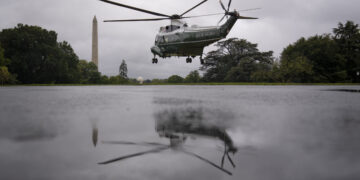FOR IMMEDIATE RELEASE:
July 8, 2021
Contact: press@defensepriorities.org
WASHINGTON, DC—In a press conference this afternoon, President Biden defended his decision to withdraw U.S. forces from Afghanistan and conclude America’s longest war. Defense Priorities Policy Director Benjamin H. Friedman issued the following statement in response:
“President Biden is right: After 20 years, thousands of casualties, and $2 trillion in spending and little to show for it, U.S. troop withdrawal is long overdue. The U.S. military mission in Afghanistan was intended to degrade Al-Qaeda and punish the Taliban for granting them refuge, not be a generation-long nation building mission. Nation building abroad was always a costly tangent to countering would-be terrorists with the intent and capability to strike the U.S., and it proved a predictable failure.
“The evident weakness of the Afghan military in the face of recent Taliban advances is a tragedy for Afghans, but not a reason for U.S. troops to stay there. It is rather an indictment of the mission that kept U.S. troops there so long. We should be outraged not by the Afghan military’s failure, but by all the myths we were told about its capability. The fact that the mission failed cannot be a reason to prolong it endlessly.
“Whatever one makes of the speed and logistics of the troop withdrawal, the decision to withdraw is right. Maintaining a U.S. military presence would have violated the February 2020 Doha agreement, giving the Taliban an excuse to resume operations against U.S. forces or renege on their counterterrorism agreement.
“While there are costs to leaving, the costs of staying would be far higher. The United States should now apply the logic behind the Afghanistan withdrawal to other occupations that have lasted too long, especially in Iraq and Syria.”
More on Afghanistan

Featuring Daniel DePetris
September 18, 2025

January 13, 2025

January 9, 2025





